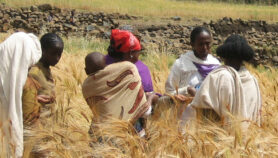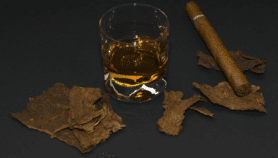By: Zablon Odhiambo
Send to a friend
The details you provide on this page will not be used to send unsolicited email, and will not be sold to a 3rd party. See privacy policy.
A nutritional supplement known as ‘Sprinkles’ has shown promising results in reducing anaemia — iron deficiency — in children in resource-poor settings.
The researchers enrolled 415 Haitian children aged 9–24 months in a food aid programme. In Haiti, two thirds of children under the age of three are anaemic.
One group received Sprinkles — a dry powder containing iron, zinc, vitamin A, folic acid and vitamin C — and another iron-fortified food called wheat-soy blend for two months, while another group received wheat-soy blend only.
Mothers were also given a pictorial instruction sheet advising on them how to use Sprinkles.
After two months, the percentage of children with anaemia in the group that received Sprinkles dropped from 54 to 24 per cent. After nine months, only 14 per cent still had anaemia, showing that Sprinkles has a protective effect over several months.
Over the same two-month period, the percentage of children with anaemia in the group that did not receive Sprinkles increased from 39 to 43 per cent.
The researchers say the study offers insights into improving nutrition in food aid programmes, because it shows that some iron-fortified food supplements, such as wheat-soy blend, do not alone provide sufficient iron for infants.
"Sprinkles are an effective and practical tool in reducing anaemia in children. When combined with other food aid initiatives, the potential impact is huge," says Marie Ruel, director of the International Food Policy Research Institute’s Food Consumption and Nutrition Division and one of the study authors, in a press release.
The findings in Haiti correspond with finding of trials in Bangladesh, Ghana and Indonesia.
Stephen Oludhe, a Kenya-based nutrition expert, says the inclusion of other minerals to interact with iron makes Sprinkles ideal for addressing anaemia, even among adults.
University of Nairobi lecturer, Eunice Cheserem, says the study will help doctors advise pregnant women and mothers on how to avoid iron deficiency.
Andrew Githeko, of Kenya Medical Research Institute, says anaemia is "very common especially in the Kenyan lowlands. Sprinkles herald a new effort to address this major cause of child morbidity," he says.
The study was published in the Journal of Nutrition.
Reference: Journal of Nutrition 137, 1023 (2007)













